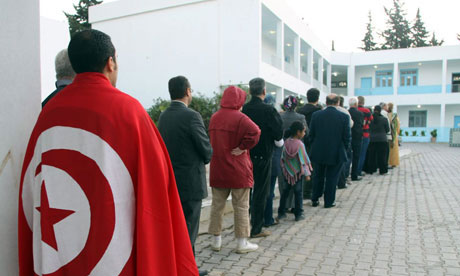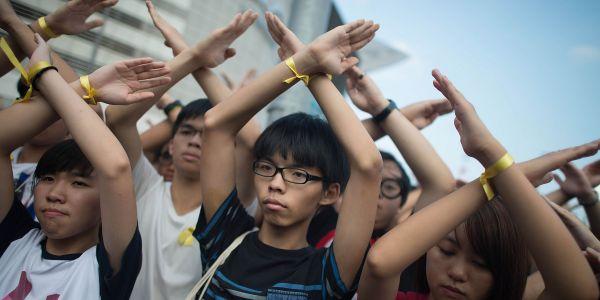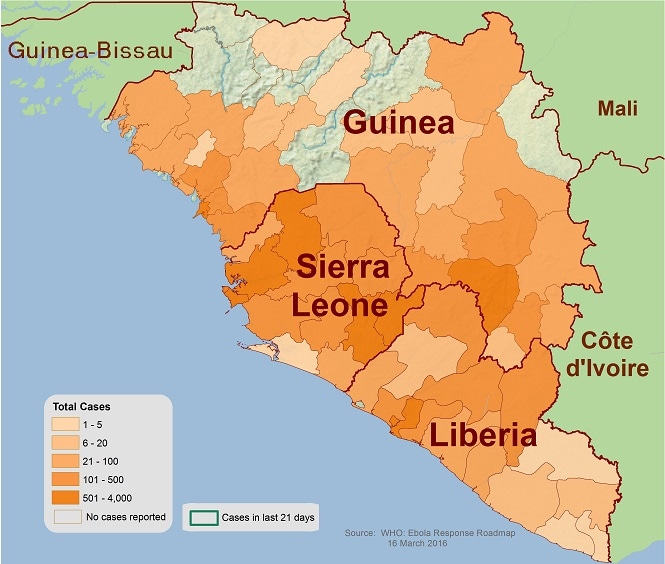After days of mass protests, Hungarian Prime Minister Viktor Orban announced today that he was putting the proposed tax on internet usage aside for the time being. Ever the populist, Orban said on the radio "if the people not only dislike something but also consider it unreasonable then it should not be done...", and said that the Hungarian government would work to revise the tax code and the internet tax proposal specifically in order to tailor it to the constituency's liking. Contrary to basic democratic principles, Prime Minister Orban is wrong to trust the sentiment of the people in this case. Populism is a slippery slope that has led numerous countries to ruin in the past, and in this particular case, the proposed tax would provide much-needed revenue to a nation that could be doing better financially.
A tax on internet usage has never been carried out in any country before. The one proposed in Hungary would have cost internet users roughly $0.60 per gigabyte of data traffic. Activists were quick to point out that this tax would end up costing 9 cents per hour of Spotify usage; 14 cents per hour of Facebook usage; $19 per movie stream, and a whopping $323 to stream an entire TV series. Those numbers are staggering - especially in a country where, according to the OECD the median household income is less than $16,000 a year (in the U.S., that figure is just under $45,000) and the average monthly income is $680 - and looking at them point blank it's perfectly understandable that people would protest such a tax.
Last Sunday, after the proposal was announced, protestors took to the streets in anger, even going so far as to hurl computer equipment at the headquarters of Prime Minister Orban's Fidesz party. Many accused the Prime Minister of continuing a series of "anti-democratic" measures that would bring down the middle and working classes. Bowing to reaction, Orban even proposed a cap of less than $3 per month for private users and about $20 for corporations. Despite this outrageously reasonable cap, protests continued. And while the protests did not reach the magnitude of those elsewhere (looking at you, Hong Kong) and did not really turn violent, they were enough to sway the Prime Minister, who has struggled to maintain popularity and cannot afford the bad publicity.
Unfortunately, Hungary can't afford to miss out on new tax revenue streams. After the global financial collapse in 2008, Hungary was forced to take a $25 billion loan from the IMF to help service its short-term debt. Its GDP per capita ranks Hungary at 71, which is not terrible but should be better. And with 14% of the population below the poverty line and a 10% unemployment rate, consumer spending is not what it should be and families are struggling. In fact, this financial malaise led the government to implement "crisis taxes" in 2010, which were imposed on the energy, retail, and telecommunications sectors. Sadly, like today, Prime Minister Orban gave way to his populist tendencies and vowed to end the taxes, which concluded in January of 2013.
All of this is beside the point, however. The fact is, the vast majority of countries already tax consumption. In the U.S., for example, we are taxed on retail sales and food service - many countries have similar taxes. The debate over taxing the internet has raged for decades. In the U.S., a moratorium on taxing internet usage was put in place in 1998, and although it is set to expire tomorrow (November 1st), it will likely be extended. The common argument is that unrestricted access to the internet has virtually infinite benefits that are far more wide-reaching and universal than a tax on that access could ever provide. This argument has teeth, and truthfully, it's hard to disagree. But the fact is, internet traffic is facilitated by physical infrastructure, the same way phone usage is, the same way vehicular traffic over roads and bridges is, and the same way most goods and services are provided. Those entities are all taxed, so why can't internet usage?
Protestors' arguments that Prime Minster Orban is implementing "anti-democratic" tax policies are unfounded: he was democratically elected and there is an entire government in place working on behalf of constituents. It is impossible to argue that new tax revenue streams are not needed. Without the sort of innovation that allowed for the internet tax proposal, the Hungarian economy may continue to flounder. Citizens pay a flat 16% income tax, and corporations just 19% - this revenue accounts for less than half of the annual budget, and will not pull Hungary out of their slump. Prime Minister Orban should implement this tax, and continue to propose new taxes that help bring up the middle and working classes and facilitate the government spending that will propel Hungary forward.
Friday, October 31, 2014
Tuesday, October 28, 2014
Secularist Success in Tunisia
Following a coup in Egypt, civil war in Syria, and mounting
armed conflict in Libya, Tunisia may well be the Arab Spring’s last hope for a
true success story. Three years after deposing dictator Zine El Abidine Ben
Ali, Tunisia’s populace has voted in its second parliamentary election, and
preliminary results show that the leading secularist party Nidaa Tounes (“Call
for Tunisia”) has won 80 of 217 parliamentary seats. Nidaa finished ahead of
the incumbent Islamist party Ennahda (67 seats), and its electoral success is
viewed as a mandate from the people to uphold Tunisia’s secular reputation.
 |
| Tunisians line up at the polls. Photo courtesy EPA. |
Among the states that experienced regime change during the
Arab Spring, Tunisia stood alone for its history of secularism and relatively
peaceful transition. Following the uprising, however, Ennahda’s rise to power
coupled with two assassinations of secular opposition leaders and attempted
suicide attacks led to fears that the country was backsliding into extremism.
These fears are hardly surprising given the tragic trail of events in Egypt,
Libya, and Syria, but do not appear to be manifesting in the latest elections. While extremist parties
like Ansar al-Sharia continue to threaten political stability, the willingness
of Ennahda, Nidaa Tounes, and the multitude of smaller political parties to
seek coalition and cooperation has for now overcome their ideological differences in the interest of stability.
Wednesday, October 22, 2014
House of Kurds: ISIS-Kurdish Fighting Threatens Turkey’s Stability
Intense fighting
between ISIS and Kurdish Peshmerga fighters over the past month for control of
the strategic city of Kobani on the Turkish-Syrian border threatens not only
domestic stability within Turkey, but also the peace process between the
Turkish government and the Kurdistan Workers’ Party (PKK).
Friday, October 17, 2014
Nigerian Ceasefire: Too Good to Be True?
The world received unexpected good news today when Nigeria's defense minister announced a ceasefire between the Nigerian military and the infamous insurgent group, Boko Haram. More importantly, it was announced that Boko Haram had agreed to release some 200 schoolgirls that made international headlines (and more importantly, thanks to my colleague Vicky, headlines right here) six months ago when they were kidnapped by the group. Since the kidnapping, a coalition of forces has been combatting Boko Haram in an attempt to suppress what appeared to be unstoppable momentum as they continued seizing hostages and securing land. For a while, it seemed as though the Nigerian government was powerless against them, and hopes of the girls' safety diminished over the weeks.
Unsurprisingly the world rejoiced at today's news, and rightfully so - the kidnapping of the schoolgirls was demonic and tragic. However, after taking a step back, it's easy to question the seriousness of this ceasefire. One has to look no farther than the Ukraine to understand the fragility of such an agreement, and Nigeria is arguably more volatile than Ukraine when it comes to conflict. So the question remains: will the ceasefire hold up, and will it hold up long enough to return these girls to their families?
There's good reason to ask this question. As I wrote back in May, Boko Haram is arguably one of the most horrifying examples of an insurgency that exists today. Sure, ISIS operates on a much larger scale and has a penchant for executing prisoners and posting the videos online for the world to see, and there are innumerable other groups around the world seeking to instill fear in local regions and kill innocent people. But Boko Haram has a particularly senseless method of committing heinous acts, with apparently little motivation other than simply killing as many people as possible. The fact that they even kept 200 schoolgirls alive as hostages for this long is shrouded in mystery, as it does not conform to their routine mode of operation (for a while, it was assumed that these girls would be drugged and eventually sold as sex slaves, although if today's announcements are accurate, this was not the case).
This is not to mention the broader geopolitical status of the region, where it would be charitable to say they are not doing well. Nigeria has been battling Boko Haram for years now, and has embarrassingly been unsuccessful in diminishing their capabilities to project terror on various regions in the country. Not too far away is Mali with their own terrorism-related woes, and the Central African Republic which is equally volatile these days. Africa is seldom the place where hopefulness pays dividends when it comes to these types of situations.
Ultimately, it would be heartless to express nothing but cynicism and skepticism at the announcements that came today, especially given the travails to stem the Ebola epidemic in the western horn (not to mention the seemingly endless turmoil all over the Middle East and in Ukraine). We should be optimistic at this news. However, that optimism should be guarded, as there are several key factors that lend distrust to the motives of Boko Haram. For now, let's hope that these girls are returned to the families that have ached over them for so many months, and that Boko Haram has somehow finally come to its senses and will accept more peacefulness in such a troubled nation.
Unsurprisingly the world rejoiced at today's news, and rightfully so - the kidnapping of the schoolgirls was demonic and tragic. However, after taking a step back, it's easy to question the seriousness of this ceasefire. One has to look no farther than the Ukraine to understand the fragility of such an agreement, and Nigeria is arguably more volatile than Ukraine when it comes to conflict. So the question remains: will the ceasefire hold up, and will it hold up long enough to return these girls to their families?
There's good reason to ask this question. As I wrote back in May, Boko Haram is arguably one of the most horrifying examples of an insurgency that exists today. Sure, ISIS operates on a much larger scale and has a penchant for executing prisoners and posting the videos online for the world to see, and there are innumerable other groups around the world seeking to instill fear in local regions and kill innocent people. But Boko Haram has a particularly senseless method of committing heinous acts, with apparently little motivation other than simply killing as many people as possible. The fact that they even kept 200 schoolgirls alive as hostages for this long is shrouded in mystery, as it does not conform to their routine mode of operation (for a while, it was assumed that these girls would be drugged and eventually sold as sex slaves, although if today's announcements are accurate, this was not the case).
This is not to mention the broader geopolitical status of the region, where it would be charitable to say they are not doing well. Nigeria has been battling Boko Haram for years now, and has embarrassingly been unsuccessful in diminishing their capabilities to project terror on various regions in the country. Not too far away is Mali with their own terrorism-related woes, and the Central African Republic which is equally volatile these days. Africa is seldom the place where hopefulness pays dividends when it comes to these types of situations.
Ultimately, it would be heartless to express nothing but cynicism and skepticism at the announcements that came today, especially given the travails to stem the Ebola epidemic in the western horn (not to mention the seemingly endless turmoil all over the Middle East and in Ukraine). We should be optimistic at this news. However, that optimism should be guarded, as there are several key factors that lend distrust to the motives of Boko Haram. For now, let's hope that these girls are returned to the families that have ached over them for so many months, and that Boko Haram has somehow finally come to its senses and will accept more peacefulness in such a troubled nation.
Friday, October 10, 2014
It’s a Good Day to be a Girl
 |
| I don't even have to write an article, I could just give you Malala quotes. |
Today, the Nobel Peace Prize committee announced its
youngest winner ever, Pakistani education advocate and world-famous terrorism
survivor Malala
Yousafzai. Her co-recipient Kailash Satyarthi,is an equally impressive
child labor activist, who goes beyond rhetoric to leading actual raids of
factories employing children, even standing down armed guards. Together, they
are excellent representatives of the people who actively fight every day against fundamentalism, extremism, and violence.
Ms. Yousafzai’s activism on behalf of women and girls’
education everywhere has earned her nearly universal praise from the West,
including this latest honor, yet she still cannot
return home to Pakistan due to fears for her and her family’s life. While she
is widely known and celebrated abroad, feted by heads of state, and has even
met Queen Elizabeth II, Malala is often called a Western pawn or CIA agent in the Pakistani media, with some even doubting the veracity of the Taliban’s attempt
on her life in 2012.
Friday, October 3, 2014
A Week in Protests: Spotlight on Hong Kong
As my colleague Colin Wolfgang likes to say, “protests are so IN right now.” The latest country to experience mass pro-democracy protests
is also perhaps the most surprising: in China over the last two weeks, student
groups and pro-democracy activists have joined forces in Hong Kong to stage
huge demonstrations and sit-ins. Despite a total government blackout on
information leaving Hong Kong, reports and photos are still coming out showing
that the protests have spread throughout the central area of the city, and show
no signs of abating.
The protests taking place in Hong Kong are primarily due to a
declaration in August that Beijing would reserve the right to vet all
candidates for the chief executive of the autonomously administrated city. The vetting process will take place in the first direct elections for the position, due to take place in 2017. When
Hong Kong gained independence from the U.K. in 1997, part of the agreement for
its transfer to Chinese administration was autonomous rule for 50 years, and
direct elections for the chief executive in 20.
Wednesday, October 1, 2014
It's Just Africa: Ebola Ravages West Africa
The World Health
Organization (WHO) was notified of the first cases of Ebola in Guinea, West
Africa in March 2014. Since then, the virus has spread past Guinea, thanks to
the region’s porous borders, into Sierra Leone, Liberia, Senegal, and Nigeria.
With a fatality rate of 70%, slightly lower than the 90% fatality rate of past
outbreaks, Ebola has had a chance, due to unprepared public health systems and
poorly informed citizenry, to spread steadily through the region. Ebola is
thought to have spread to humans through fruit bats, which are considered a
delicacy for some West Africans, as well as through other types of bush meat such
as small rodents.
While Ebola does not
spread quite as quickly as the Spanish flu or pre-vaccination days measles,
efforts to contain the disease have already exceeded the capacity of public
health systems in West Africa. The total case count of the disease has reached
6,574, as of September 29th, according to the US Centers for Disease Control
and Prevention (CDC). According
to the CDC, the total number of laboratory confirmed cases is 3,626 and the
total number of deaths is 3,091. The overwhelming majority of these cases have
been documented in Liberia (3,458 total cases, 914 laboratory confirmed cases,
and 1,830 deaths), with Sierra Leone running a close second (2,021 total cases,
1,816 laboratory confirmed cases, and 605 deaths). In Senegal, no new cases
have been reported since August 29, and in Nigeria, no new cases have been
reported since September 5. In Guinea, the infection rate seems to have
stabilized.
Subscribe to:
Posts (Atom)




